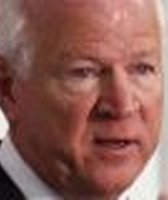Stand up for the facts!
Our only agenda is to publish the truth so you can be an informed participant in democracy.
We need your help.
I would like to contribute

AJC PolitiFact Georgia didn't buy a lemon of a claim about General Motors
This week's AJC PolitiFact Georgia was brought to you by the word "exaggeration."
Politicians exaggerated their successes, stated remote possibilities as fact, overreached with their logic, and in one case, overstated the lengths of other nations' school years by a couple of weeks.
Politicians of all levels of renown diverged from the truth. This week, the Truth-O-Meter tested Nobel Peace Prize winner and former President Jimmy Carter, President Barack Obama, U.S. House Rep. Phil Gingrey and state House Rep. Jill Chambers.
Here's how the politicians fared last week:
U.S. House Rep. Phil Gingrey, R-Marietta: The federal government can tell General Motors what to charge for its automobiles.
Gingrey recently cited an example on CNN of what he considered government overreach: the federal bailout of General Motors.
"We're concerned with a powerful government who is telling General Motors now, maybe, what they can charge for their automobiles," Gingrey said Sept. 25. "Indeed, if the government owns 61 percent, they can do that."
GM denies this.
First, some background. In December 2008, the government approved a $13.4 billion loan to GM and Chrysler to keep the companies running. Later, GM got more money, and taxpayers in return received a 61 percent stake in the company.
Gingrey's spokeswoman said since the federal government is GM's majority stakeholder, it can set car prices.
Theoretically, maybe. But we found no evidence GM gave the feds control over vehicle pricing and none that the company's board of directors has tried to give it to them. False.
Former President Jimmy Carter: Said that his batting average with Congress is higher than every other president since Dwight D. Eisenhower except Lyndon Johnson.
Thirty years since losing the White House after a single term, Carter is at ease with his presidential legacy.
This includes what he described in a Sept. 20 interview with NBC as a winning record with the U.S. Congress.
"And as you probably know, I had the highest batting average with Congress than any president in modern days except Lyndon Johnson," Carter said.
But wasn't Carter at odds with Congress?
CQ Almanac lists Carter's success as third behind John F. Kennedy and Johnson. We located no study that found Carter was second only to Johnson.
A website Carter said listed him second to Johnson has since been revised because Carter's CQ scores contradict the assessment.
Other measures show Carter struggled turning his proposals into laws. And if you compare Carter with other presidents who served while their parties controlled both the House and Senate, he's at or near the bottom.
We rate Carter's statement Half True.
No rating: President Barack Obama exaggerates his record on campaign promises
When Obama talked to Rolling Stone about campaign promises he's kept, we couldn't resist checking it out.
"I keep in my pocket a checklist of the promises I made during the campaign, and here I am, halfway through my first term, and we've probably accomplished 70 percent of the things that we said we were going to do," Obama said.
We asked the White House whether we could get a copy of the list but didn't hear back. Fortunately, we keep our own.
Our list has 506 promises. As of this item's writing, Obama has kept 122, or 24 percent.
Obama might only have the most important promises in his pocket, so we selected 25 as the most significant. Obama kept six of those.
By our reckoning, Obama has not kept 70 percent of his promises. But we recognize we don't know what's on his list and there's some subjectivity. So we did not rate his statement on the Truth-O-Meter. It is instead rated on the "Obameter" on our PolitiFact national site. You can access that site through PolitiFact Georgia.
Obama: "We now have our kids go to school about a month less than most other advanced countries."
It's not the most popular position among the too-young-to-vote crowd.
Nonetheless, in a Sept. 27 interview on "Today," Obama repeated it: "I think we should have longer school years."
"We now have our kids go to school about a month less than most other advanced countries," Obama said. "And that makes a difference."
Really? In the United States, kids go to school 180 days a year.
We looked at 2008 statistics from the Organization for Economic Co-Operation and Development, a research group sponsored by most of the world's advanced industrialized nations. Among countries that reported statistics, the average was 187 days. For the European Union, it was 184 days per year.
American kids do go to school fewer days than those in many other advanced countries, but on average, it's only about a week and a half less. Students in about a quarter of those countries go close to a month longer than Americans.
Half True.
State House Rep. Jill Chambers, R-Atlanta: Says campaign contributions to her rival for a state House seat was money intended for schoolchildren.
Even among this election season's accusations of dastardly deeds, an attack in a local state House race stands out.
A recorded telephone message recently told voters that Democrat Elena Parent is taking "over $22,000 intended for our schoolchildren in campaign contributions from a law firm representing the corrupt DeKalb school board."
Yes, corruption accusations are rocking DeKalb schools. Sutherland Asbill & Brennan, the firm to which the ad refers, does work for them. The donation amount is correct.
But those contributions come from Sutherland employees, not the firm. No DeKalb school board member was named in the corruption.
Plus, saying campaign contributions to Parent came from money intended for schoolchildren tests the bounds of logic.
Using Chambers' reasoning, if a Sutherland lawyer bought a candy bar at a Wal-Mart, you could accuse the retailer of taking money intended for students.
We rule Chambers' accusation as Pants on Fire.
Our Sources
xx















































